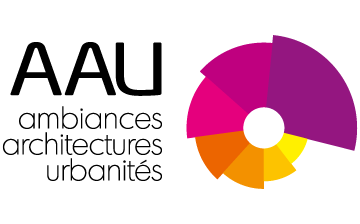Projet Exploratoire PROSECO – PROduction Sensible de l’Espace public Contemporain. De la conception à l’expérience, pour penser les enjeux politiques du sensible
PROSECO – Sensitive Production of the contemporary public space. From design to experience, to think the political stakes of the sensitive
Financement : IDEX - appel à projets Initiatives de Recherche Stratégiques (IRS)
Responsable(s) scientifique : Théa Manola
Contrat de recherche terminé en décembre 2019
FR
PROSECO vise à apporter des éléments de compréhension sur la place du sensible dans l’ensemble du processus de production des espaces publics urbains (allant de la commande au design et la réalisation, jusqu’à l’expérience, l’usage et l’appropriation des espaces).
En ce sens, le projet se structure autour de 2 axes. Le premier vise à questionner la mobilisation du sensible à la fois dans la formulation des besoins (auprès donc de la maîtrise d’ouvrage) et dans la conception/réalisation (auprès donc de la maîtrise d’œuvre) des espaces publics. Dans ce cadre, il s’agit d’interroger les conditions (économiques, politiques, stratégiques, humaines…) et les enjeux de la mobilisation du sensible dans la commande (participation, attractivité…), le design et la réalisation des espaces publics. Il s’agit aussi de comprendre les spécificités qu’apporte la mobilisation du sensible dans le processus de conception, ainsi que les valeurs qu’il sous-tend. Le deuxième axe vise à analyser des expériences sensibles de ces espaces publics selon trois perspectives : (1) comprendre l’expérience sensible, esthétique et affective de ces espaces ; (2) interroger les enjeux socio-politiques des espaces publics contemporains issus de ces expériences (influence sur les choix quotidiens comme par exemple de déplacement ou encore résidentiels ; exclusions/inclusions…) ; (3) questionner la « capacité » politique du sensible par une mise en perspective/tension des représentations institutionnelles et celles « ordinaires » des espaces publics.
Dans le cadre du financement IDEX/IRS, il s’agira de réaliser une enquête exploratoire sur un terrain de la région grenobloise ayant fait l’objet d’un projet récent, mettant en avant et en œuvre des enjeux participatifs. Il s’agira dans ce cadre de tester la démarche méthodologique d’ensemble et de consolider la problématisation afin de préparer un projet de recherche de plus grande envergure.
Équipe de recherche :
AAU-CRESSON
- Laure Brayer (chercheure au CRESSON/UMR AAU)
- Rainer Kazig (CR CNRS au CRESSON/UMR AAU)
- Sylvie Laroche (Chercheure au CRESSON/UMR AAU)
- Théa Manola (MCF à l’ENSAG et chercheure au CRESSON/UMR AAU)
- Rachel Thomas (CR CNRS au CRESSON/UMR AAU)
PACTE
- Nathalie Audas (MCF à l’IUT de Grenoble et chercheure à l’UMR PACTE)
- Federica Gatta (MCF à l’IUGA et chercheure à l’UMR PACTE)
- Silvère Tribout (MCF à l’IUGA et chercheur à l’UMR PACTE)
EN
PROSECO aims to provide an understanding on the place of the sensitive in the production process of urban public spaces as a whole (from the commission to the design and production, to the experience, the use and the appropriation of the spaces).
In that sense, the project is structured around two lines. The first one aims to question the mobilisation of the sensitive both in the formulation of needs (with the contracting authority) and in the design/production (with the executive authority) of public spaces. In that context, the point is to question the conditions (economic, political, strategic, human…) and the stakes of the mobilisation of the sensitive in the commission (participation, attractivity…), the design and the production of public spaces. It is important to understand the specificities brought by the mobilisation of the sensitive into the design process, as well as the underlying values. The second axis aims to analyse sensitive experiences of public spaces following three perspectives: (1) understanding the sensitive, aesthetic and affective experience of these spaces; (2) questioning the socio-political stakes of the contemporary public spaces emerging from these experiences (influence on the everyday choices, e.g. in terms of movements or residential choices; exclusions/inclusions…); (3) questioning the political “ability” of the sensitive with a contrast/tensioning of institutional and ordinary representations of public spaces.
As part of the IDEX/IRS funding, the point is to carry out an exploratory survey on a field of the Grenoble area that has been studied during a recent project, highlighting and implementing participatory elements. The approach will aim to test the whole methodological process and to consolidate the problem statement in order to prepare a larger research project.
Research team:
AAU-CRESSON
- Laure Brayer (researcher at CRESSON/UMR AAU)
- Rainer Kazig (CR CNRS at CRESSON/UMR AAU)
- Sylvie Laroche (researcher at CRESSON/UMR AAU)
- Théa Manola (MCF at ENSAG and researcher at CRESSON/UMR AAU)
- Rachel Thomas (CR CNRS at CRESSON/UMR AAU)
PACTE
- Nathalie Audas (MCF at IUT of Grenoble and researcher at UMR PACTE)
- Federica Gatta (MCF at IUGA and researcher at UMR PACTE)
- Silvère Tribout (MCF at IUGA and researcher at UMR PACTE)
Retrouvez tous les contrats de recherche de l'équipe CRESSON
